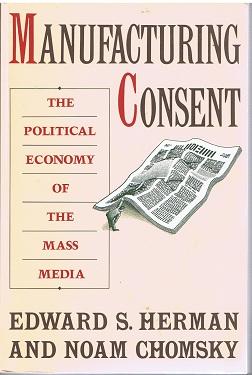Michel Foucault: The Birth of Biopolitics: Lectures at the Collège de France, 1978-1979 (2008–) [EN, PT, CZ]
Filed under book | Tags: · biopolitics, governmentality, neoliberalism, philosophy, political economy, political theory, politics
Michel Foucault’s lectures at the Collège de France in 1979, The Birth of Biopolitics, pursue and develop further the themes of his lectures from the previous year, Security, Territory, Population. Having shown how Eighteenth century political economy marks the birth of a new governmental rationality – seeking maximum effectiveness by governing less and in accordance with the naturalness of the phenomena to be governed – Michel Foucault undertakes the detailed analysis of the forms of this liberal governmentality. This involves describing the political rationality within which the specific problems of life and population were posed: “Studying liberalism as the general framework of biopolitics”.
What are the specific features of the liberal art of government as they were outlined in the Eighteenth century? What crisis of governmentality characterises the present world and what revisions of liberal government has it given rise to? This is the diagnostic task addressed by Foucault’s study of the two major twentieth century schools of neo-liberalism: German ordo-liberalism and the neo-liberalism of the Chicago School. In the years he taught at the Collège de France, this was Michel Foucault’s sole foray into the field of contemporary history. This course thus raises questions of political philosophy and social policy that are at the heart of current debates about the role and status of neo-liberalism in twentieth century politics. A remarkable feature of these lectures is their discussion of contemporary economic theory and practice, culminating in an analysis of the model of homo oeconomicus.
Foucault’s analysis also highlights the paradoxical role played by “society” in relation to government. “Society” is both that in the name of which government strives to limit itself, but it is also the target for permanent governmental intervention to produce, multiply, and guarantee the freedoms required by economic liberalism. Far from being opposed to the State, civil society is thus shown to be the correlate of a liberal technology of government.
Edited by Michel Senellart
General Editors: François Ewald and Alessandro Fontana
Translated by Graham Burchell
Publisher Palgrave Macmillan, 2008
ISBN 140398655X, 9781403986559
346 pages
publisher (EN)
google books (EN)
The Birth of Biopolitics: Lectures at the Collège de France, 1978-1979 (English, trans. Graham Burchell, 2008, updated on 2013-9-26)
Nascimento da Biopolítica: Curso dado no Collège de France (1978-1979) (Portuguese, trans. Eduardo Brandão and Claudia Berliner, 2008, added on 2013-9-26)
Zrození biopolitiky: Kurz na Collège de France (1978-1979) (Czech, trans. Petr Horák, 2009, no OCR, added on 2013-9-26)
Georg Lukács: History and Class Consciousness: Studies in Marxist Dialectics (1923/1972)
Filed under book | Tags: · bourgeoisie, capitalism, communism, dialectic, economy, historical materialism, history, marxism, philosophy, political economy, political theory, proletariat, social democracy

Written between 1919 and 1922 and first published in 1923, History and Class Consciousness initiated the current of thought that came to be known as Western Marxism. The book is notable for contributing to debates concerning Marxism and its relation to sociology, politics and philosophy, and for reconstructing many elements of Marx’s theory of alienation before most of the works of the Young Marx, in which it is expounded, had been published. Lukács’s work elaborates and expands upon Marxist theories such as ideology, false consciousness, reification and class consciousness.
Originally published as Geschichte und Klassenbewußtsein, 1923.
First published in this edition by Merlin Press, London, 1971
Publisher MIT Press, 1972
ISBN 0262620200, 9780262620208
404 pages
Wikipedia
Publisher
Google books
PDF (23 MB, updated on 2014-9-5)
Comment (0)Edward S. Herman, Noam Chomsky: Manufacturing Consent: The Political Economy of the Mass Media (1988/2002)
Filed under book | Tags: · mass media, political economy, politics, propaganda, war

In this pathbreaking work, now with a new introduction, Edward S. Herman and Noam Chomsky show that, contrary to the usual image of the news media as cantankerous, obstinate, and ubiquitous in their search for truth and defense of justice, in their actual practice they defend the economic, social, and political agendas of the privileged groups that dominate domestic society, the state, and the global order.
Based on a series of case studies—including the media’s dichotomous treatment of “worthy” versus “unworthy” victims, “legitimizing” and “meaningless” Third World elections, and devastating critiques of media coverage of the U.S. wars against Indochina—Herman and Chomsky draw on decades of criticism and research to propose a Propaganda Model to explain the media’s behavior and performance. Their new introduction updates the Propaganda Model and the earlier case studies, and it discusses several other applications. These include the manner in which the media covered the passage of the North American Free Trade Agreement and subsequent Mexican financial meltdown of 1994-1995, the media’s handling of the protests against the World Trade Organization, World Bank, and International Monetary Fund in 1999 and 2000, and the media’s treatment of the chemical industry and its regulation. What emerges from this work is a powerful assessment of how propagandistic the U.S. mass media are, how they systematically fail to live up to their self-image as providers of the kind of information that people need to make sense of the world, and how we can understand their function in a radically new way.
Publisher Pantheon Books, 2002
ISBN 0375714499, 9780375714498
Length 412 pages
More info (wikipedia)
More info (publisher)
More info (google books)

